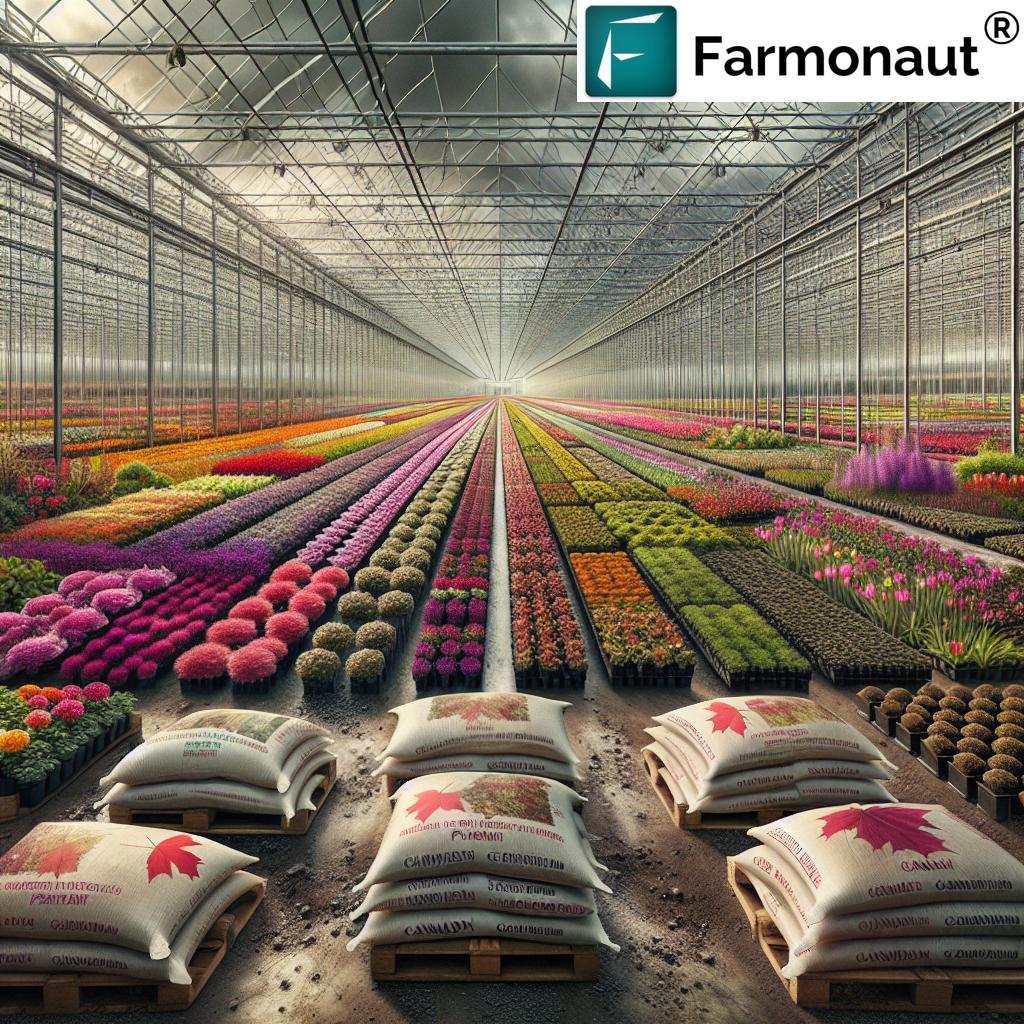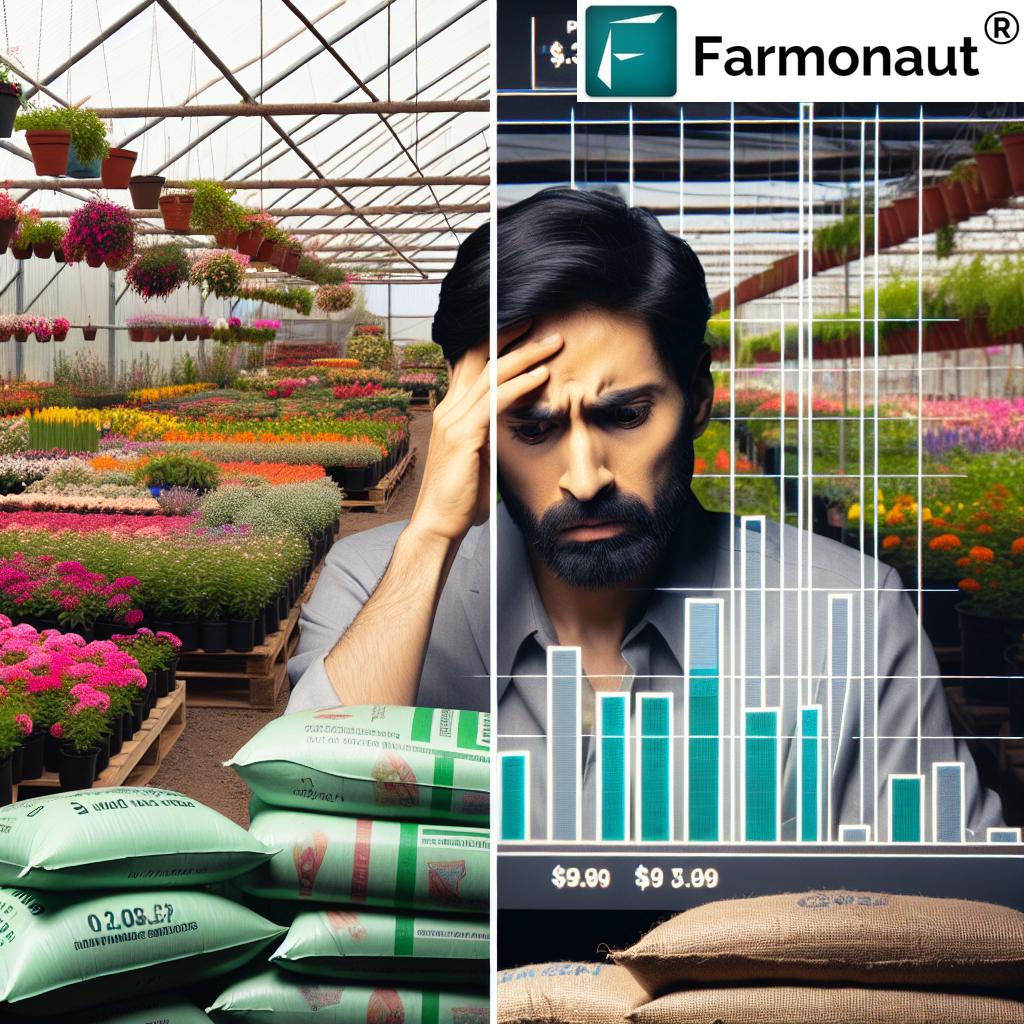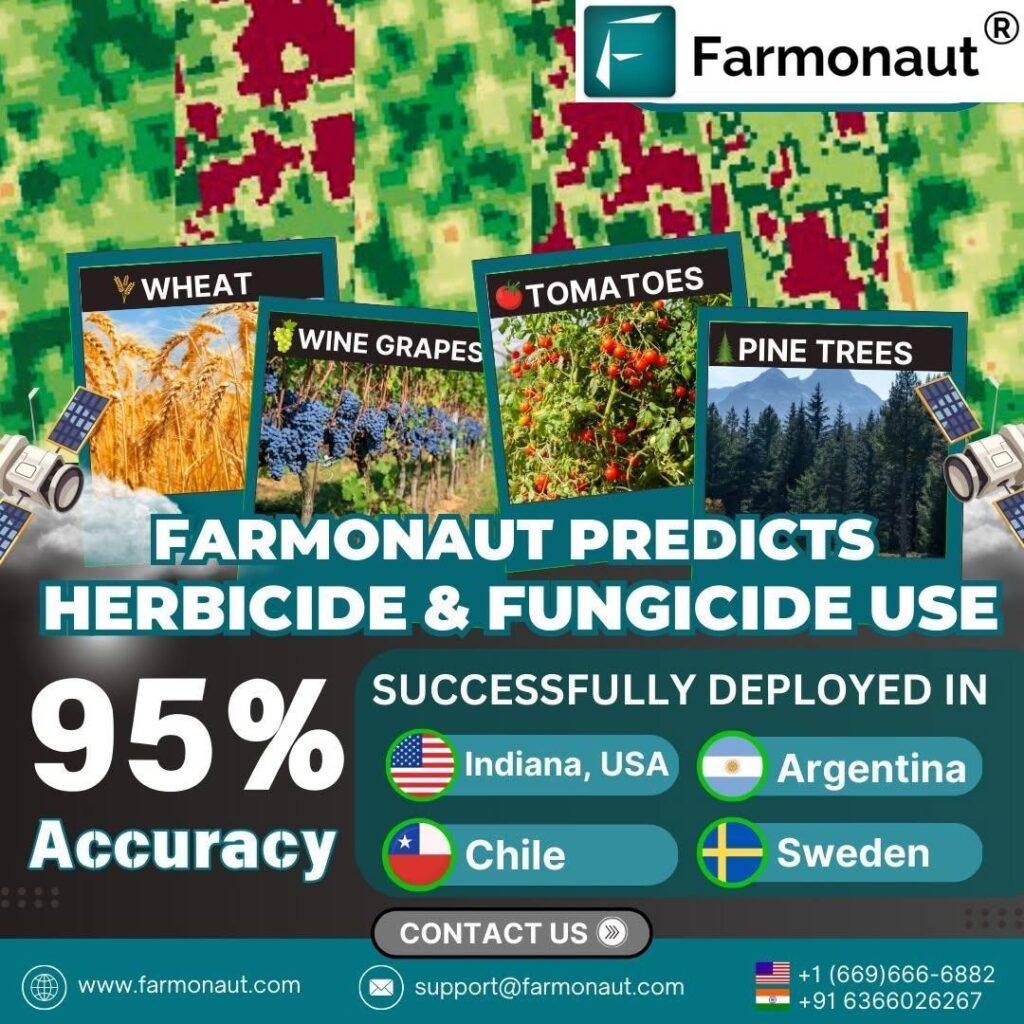West Michigan Greenhouse Industry Navigates Uncertainty: Impact of Canadian Tariffs on Soil and Plant Supplies
“West Michigan’s greenhouse industry relies heavily on Canadian imports, with peat moss being a crucial component in 70% of soil mixtures.”
In the heart of West Michigan, the greenhouse industry finds itself at a critical juncture as potential tariffs loom on the horizon. These tariffs, particularly those affecting Canadian peat moss imports, have sent ripples of concern through the local horticultural community. As we delve into this pressing issue, we’ll explore how these changes are impacting the delicate balance between international trade and local greenhouse businesses in our region.
The Peat Moss Predicament
Peat moss, a fundamental ingredient in soil mixtures used by greenhouses and gardens across West Michigan, has become the center of attention in recent trade discussions. The potential implementation of tariffs on this essential Canadian import has raised alarm bells throughout the industry. Let’s break down why this matters:
- Soil Composition: Peat moss is a crucial component in creating the ideal growing medium for various plants.
- Canadian Dominance: Canada is the primary source of peat moss for many U.S. greenhouses, including those in West Michigan.
- Cost Implications: Any tariff on peat moss could significantly increase production costs for local growers.
As we navigate these uncertain waters, it’s essential to understand the broader context of the greenhouse industry in West Michigan and how it intersects with our Canadian neighbors to the north.

The West Michigan Greenhouse Landscape
West Michigan’s greenhouse industry is a vibrant and essential part of our local economy. From small family-owned operations to large-scale commercial greenhouses, this sector plays a crucial role in providing plants, flowers, and produce to our communities. However, the industry’s reliance on Canadian imports extends beyond just peat moss:
- Finished Plants: Many greenhouses supplement their home-grown inventory with specialized plants from Canadian growers.
- Cut Flowers: The floristry sector heavily depends on Canadian imports, especially for out-of-season blooms.
- Soil Amendments: Beyond peat moss, various soil enhancers and fertilizers often cross the border to reach our greenhouses.
This interdependence highlights the complex web of trade relationships that have developed over decades between West Michigan and Canadian horticultural businesses.
The Tariff Tangle: Understanding the Impact
The potential implementation of tariffs on Canadian horticultural products is not just a simple matter of increased costs. It’s a multifaceted issue that could reshape the entire industry landscape in West Michigan. Here’s how:
- Supply Chain Disruption: Tariffs could force businesses to seek alternative suppliers, potentially disrupting long-established supply chains.
- Price Increases: Higher import costs would likely be passed on to consumers, affecting the affordability of plants and gardening supplies.
- Local Production Boost: Some see the tariffs as an opportunity to increase local production of peat moss alternatives and other supplies.
- Market Share Shifts: Canadian growers might lose market share in West Michigan, opening doors for local or other international suppliers.
To better understand these potential impacts, let’s look at a comparative table:
| Aspect | Current Situation | Potential Post-Tariff Impact |
|---|---|---|
| Peat Moss Import Costs | Low | High |
| Soil Mixture Pricing | Stable | Increased |
| Finished Plant Import Costs | Moderate | High |
| Cut Flower Import Costs | Moderate | High |
| Local Grower Market Share | Moderate | Potentially Increased |
| Overall Product Pricing | Competitive | Likely to Increase |
| Supply Chain Stability | Stable | Uncertain |
This table illustrates the potential shifts in various aspects of the greenhouse industry, from import costs to market dynamics. It’s clear that the implementation of tariffs could have far-reaching consequences for businesses and consumers alike.
Voices from the Greenhouse: Local Perspectives
To get a ground-level view of the situation, we spoke with several greenhouse owners and operators in West Michigan. Their insights provide a valuable perspective on how the industry is preparing for potential changes:
“You’re always aware of where extra fees are going to come in and you’re nervous about that, right. We are probably on the luckier side of a lot of garden centers and greenhouses, because we grow about 80% of what we sell,” said Katey Romence, co-owner of Romence Gardens and Greenhouses in Grand Rapids.
Romence’s statement highlights a crucial point: diversification and self-reliance can provide a buffer against external economic shocks. However, even businesses like Romence Gardens, which grow a significant portion of their inventory, are not immune to the potential impacts of tariffs.
“Potential tariffs on Canadian horticultural products could affect up to 40% of plant supplies in West Michigan garden centers.”
The Peat Moss Puzzle: Alternatives and Adaptations
As the industry grapples with the possibility of increased peat moss costs, many growers are exploring alternatives. This search for substitutes is not just about finding a cheaper option; it’s about maintaining the quality and consistency that West Michigan greenhouses are known for. Some potential alternatives include:
- Coconut Coir: A byproduct of coconut processing that offers similar water retention properties to peat moss.
- Composted Bark: A locally sourced option that can improve soil structure and nutrient content.
- Rice Hulls: An agricultural byproduct that can enhance soil aeration and drainage.
- Synthetic Materials: Engineered growing media that can be tailored to specific plant needs.
While these alternatives show promise, transitioning to new growing media is not without challenges. Growers must consider factors such as pH levels, water retention, and nutrient availability to ensure their plants thrive in these new environments.

The Ripple Effect: Beyond Soil and Plants
The impact of potential tariffs extends far beyond just the cost of soil and plants. It touches various aspects of the greenhouse industry and the broader community:
- Employment: Changes in production costs could affect staffing levels at greenhouses and garden centers.
- Local Economy: Higher prices for plants and gardening supplies might impact consumer spending in other sectors.
- Environmental Concerns: The search for peat moss alternatives could lead to more sustainable practices in the industry.
- Innovation: The challenge of adapting to new market conditions could spur technological advancements in horticulture.
As we consider these wider implications, it’s clear that the greenhouse industry’s response to these challenges will have far-reaching effects on West Michigan’s economy and community.
Navigating Uncertainty: Strategies for Adaptation
In the face of these potential changes, West Michigan’s greenhouse industry is not standing still. Businesses are developing strategies to navigate the uncertainty and maintain their competitive edge. Some of these strategies include:
- Diversification of Suppliers: Reducing dependence on a single source for critical materials.
- Local Partnerships: Strengthening relationships with local growers and suppliers to create a more resilient supply chain.
- Investment in Technology: Adopting advanced growing techniques to improve efficiency and reduce reliance on imported materials.
- Consumer Education: Informing customers about the reasons behind potential price changes and the value of supporting local growers.
- Advocacy: Working with industry associations to communicate the impact of tariffs to policymakers.
These proactive measures demonstrate the resilience and adaptability of West Michigan’s greenhouse industry in the face of challenges.
The Role of Technology in Adapting to Change
As the greenhouse industry in West Michigan grapples with potential tariffs and supply chain disruptions, technology is emerging as a crucial tool for adaptation and growth. Advanced agricultural technologies can help growers optimize their operations, reduce costs, and maintain quality even in the face of changing market conditions.
One such technology that’s gaining traction in the industry is satellite-based farm management solutions. These systems provide valuable insights into crop health, soil conditions, and resource management, helping growers make data-driven decisions to improve efficiency and yield.
For instance, Farmonaut, a leading provider of satellite-based agricultural solutions, offers tools that can be particularly beneficial for greenhouse operators in these uncertain times:
- Real-time crop health monitoring using multispectral satellite imagery
- AI-driven advisory systems for personalized farm management
- Resource management tools to optimize water and fertilizer usage
- Weather forecasting to help plan operations and protect crops
By leveraging these technologies, greenhouse operators can potentially offset some of the increased costs associated with tariffs by improving their overall operational efficiency.
For those interested in integrating these advanced technologies into their greenhouse operations, Farmonaut offers both mobile and web applications, as well as API access for developers looking to create custom solutions.
For developers interested in integrating Farmonaut’s satellite and weather data into their own systems, detailed API documentation is available at Farmonaut API Developer Docs.
The Future of West Michigan’s Greenhouse Industry
As we look to the future, the greenhouse industry in West Michigan stands at a crossroads. The potential implementation of tariffs on Canadian imports presents both challenges and opportunities. While the immediate impact may be disruptive, it could also spur innovation and growth in local production.
Key factors that will shape the industry’s future include:
- Policy Decisions: The final form and implementation of any tariffs will significantly impact the industry’s trajectory.
- Technological Adoption: The rate at which greenhouses embrace new technologies could determine their competitiveness.
- Consumer Preferences: Shifts in consumer demand for locally grown or sustainably produced plants could reshape the market.
- Climate Change: Long-term environmental trends will influence growing conditions and resource availability.
Despite the uncertainties, the resilience and adaptability demonstrated by West Michigan’s greenhouse industry suggest a capacity to not just weather these challenges, but to emerge stronger and more innovative.
Conclusion: Cultivating Resilience in Uncertain Times
The potential impact of Canadian tariffs on West Michigan’s greenhouse industry underscores the interconnectedness of our global horticultural community. As businesses navigate these uncertain waters, they’re demonstrating remarkable adaptability and innovation.
From exploring alternative growing media to embracing cutting-edge technologies, the industry is proving its resilience. While challenges lie ahead, there’s also opportunity for growth, increased sustainability, and the strengthening of local supply chains.
As consumers and community members, we can support our local greenhouse industry by staying informed, understanding the challenges they face, and recognizing the value they bring to our region. By working together and embracing innovation, West Michigan’s greenhouse industry can continue to thrive, providing us with the beautiful plants and vital agricultural products we’ve come to rely on.
FAQ Section
Q: How significant is the Canadian peat moss import to West Michigan’s greenhouse industry?
A: Canadian peat moss is a crucial component, used in approximately 70% of soil mixtures in West Michigan greenhouses.
Q: What alternatives are greenhouses considering for peat moss?
A: Alternatives include coconut coir, composted bark, rice hulls, and synthetic growing media.
Q: How might tariffs affect consumer prices for plants and gardening supplies?
A: Tariffs could lead to increased costs for soil and plants, which may be passed on to consumers in the form of higher prices.
Q: Are all greenhouse businesses equally affected by these potential tariffs?
A: No, the impact varies. Businesses that grow a larger percentage of their inventory may be less affected than those relying heavily on imports.
Q: How can technology help greenhouse businesses adapt to these challenges?
A: Advanced technologies like satellite-based farm management systems can help optimize operations, reduce costs, and improve efficiency.
Embracing Innovation for a Sustainable Future
As we conclude our exploration of the challenges facing West Michigan’s greenhouse industry, it’s clear that innovation and adaptability will be key to navigating the uncertain future. The potential tariffs on Canadian imports, particularly peat moss, have catalyzed a broader conversation about sustainability, efficiency, and resilience in the horticultural sector.
One avenue for innovation that’s gaining traction is the use of advanced agricultural technologies. These tools can help greenhouse operators optimize their resource use, monitor crop health more effectively, and make data-driven decisions to improve yields and reduce waste.
For those looking to stay at the forefront of these technological advancements, Farmonaut offers a range of solutions tailored to the needs of modern agriculture. Their satellite-based crop monitoring and AI-driven advisory systems can provide valuable insights for greenhouse operators looking to maximize efficiency in the face of potential cost increases.
Moreover, for those interested in integrating advanced agricultural technologies into their operations, Farmonaut provides comprehensive API access. This allows developers and businesses to incorporate Farmonaut’s satellite and weather data directly into their own systems, opening up new possibilities for custom solutions tailored to the unique needs of West Michigan’s greenhouse industry.
Developers can access the API at Farmonaut API.
As we move forward, the greenhouse industry in West Michigan has an opportunity to not just adapt to challenges, but to lead the way in sustainable and technologically advanced horticulture. By embracing innovation, strengthening local partnerships, and leveraging advanced technologies, the industry can build a resilient future that continues to provide our community with beautiful plants, fresh produce, and a thriving local economy.
Community Support and Education
In these times of change, community support and education play a crucial role in the success of our local greenhouse industry. As consumers and community members, we can contribute to the industry’s resilience in several ways:
- Support Local: Choose locally grown plants and products when possible to support West Michigan greenhouses.
- Stay Informed: Keep up-to-date with industry news and understand the challenges faced by local businesses.
- Participate in Community Gardens: Engage in community gardening initiatives to promote local horticulture.
- Attend Workshops: Many greenhouses offer educational workshops on gardening and plant care. Participating in these can deepen your understanding and connection to the industry.
- Advocate: Support policies that promote sustainable and fair trade practices in the horticultural sector.
By engaging with and supporting our local greenhouse industry, we can help ensure its vibrant future in West Michigan, regardless of the challenges that lie ahead.
As we’ve seen throughout this exploration of West Michigan’s greenhouse industry, the challenges posed by potential Canadian tariffs are significant. However, they also present an opportunity for innovation, growth, and increased sustainability. By leveraging advanced technologies, exploring alternatives to traditional materials, and fostering strong community connections, the industry is poised to adapt and thrive in the face of change.
The resilience demonstrated by local greenhouse operators, coupled with the support of the community and the adoption of cutting-edge agricultural technologies, paints a picture of an industry ready to meet the challenges of tomorrow. As we move forward, the greenhouse industry in West Michigan will undoubtedly continue to play a vital role in our local economy and in bringing beauty and freshness to our homes and gardens.
Earn With Farmonaut: Affiliate Program
Earn 20% recurring commission with Farmonaut’s affiliate program by sharing your promo code and helping farmers save 10%. Onboard 10 Elite farmers monthly to earn a minimum of $148,000 annually—start now and grow your income!
Farmonaut Subscriptions
In conclusion, while the prospect of Canadian tariffs presents challenges for West Michigan’s greenhouse industry, it also offers opportunities for growth, innovation, and increased sustainability. By embracing new technologies, exploring alternative materials, and strengthening community ties, the industry is well-positioned to navigate these uncertain times and emerge stronger than ever.



















